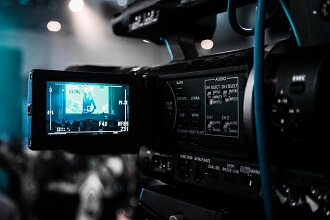Debate on Cameras in Court Continues as TV Documentary Uses Court Footage
Debate on Cameras in Court Continues as TV Documentary Uses Court Footage

Legal experts are conflicted over whether the opening of English and Welsh courtrooms to television cameras would have positive or negative implications for the national justice system.
The legal scope for filming in courts has been expanding in recent years, with Lord Justice Burnett informing the House of Lords constitution committee earlier this year that plans are underway to live-stream selected cased from the Court of Appeal’s civil division.
In August, ITV’s Inside the Court of Appeal became the first documentary to use footage from the national courts combined with interviews of the individuals involved in appeal cases.
The recording of courtroom proceedings was made illegal in England and Wales in 1925 by Code 41 of the Criminal Justice Act, which prohibits taking or distributing photographs of a court trial. In general, the only imagery permitted of courtroom trials has been sketches drawn by court artists, with members of the public only able to witness a trial by attending in person in the public gallery.
Developments in recent years have however marked a shift towards a more open approach, with cameras allowed in the Court of Appeal since 2013, proceedings in the Supreme Court broadcast live since 2014, and the sentencing remarks in Crown Court cases being filmed since 2016.
The Supreme Court’s 2017-18 annual report indicates that over 137,800 people watched proceedings in the court live last year and a further 75,000 viewed archived cases on demand.
The most watched Supreme Court case remains Gina Miller’s 2016 appeal regarding the legality of the government’s power to trigger Brexit under Article 50 of the Treaty on the European Union.
ITN says more court filming “inevitable”
Some legal commentators suggest that a wider use of cameras in British courts would lead to more openness in the English justice system and improve the public’s understanding of and engagement with the law. However, others cite concerns with a move towards televised proceedings, including that this would promote sensationalism in the way trials are carried out and reduce the justice system to consumer entertainment.
Fears include that televising trials would discourage witnesses from giving full and honest evidence, and potentially even discourage the victims of crime from bringing proceedings. Television company ITN – which has filmed and televised many of the cases broadcast to date – say that so far, filming in courts has not had a harmful impact on procedural justice. ITN’s head of compliance John Battle says that the group’s experience in televising court proceedings has not shown “any negatives,” with cases undisrupted and witnesses not “put off” from coming to court.
Mr Battle maintains that an increase of filming in the courts is “inevitable,” but acknowledges that for this to happen, there will have to be “protocols and safeguards in place to protect witnesses.”
Currently, CPS guidelines state that prosecutors must “consider a range of options” along with police to give witnesses that are fearful of giving evidence the requisite protection to testify “wherever possible.”
Greater broadcast powers would require “a change in the law and careful thought”
Victims’ Commissioner Baroness Newlove has spoken in support of introducing more cameras into courtrooms, suggesting that the move may improve the justice system by holding those involved in a trial to public account.
“Hopefully, it might change the behaviours of some of the key participants, such as aggressive barristers or defendants who show contempt for the justice process,” Newlove said in an interview this month.
Family court campaigns group The Transparency Project does not agree that the opening of court trials to cameras would improve accountability, maintaining instead that the duty of holding barristers and defendants to account should lie with judges.
The charity said: “Whilst transparency and the advancement of public understanding of court processes are to be encouraged, a proposal to allow the filming of trials would require a change in the law and careful thought.”
Criminal defence experts in Uxbridge, West London
We have one of the leading teams of criminal specialists in West London and the South East. If you are facing a serious criminal charge, you can contact a member of the IBB’s Criminal Defence team, call us on 03456 381381or email enquiries@ibblaw.co.uk.
